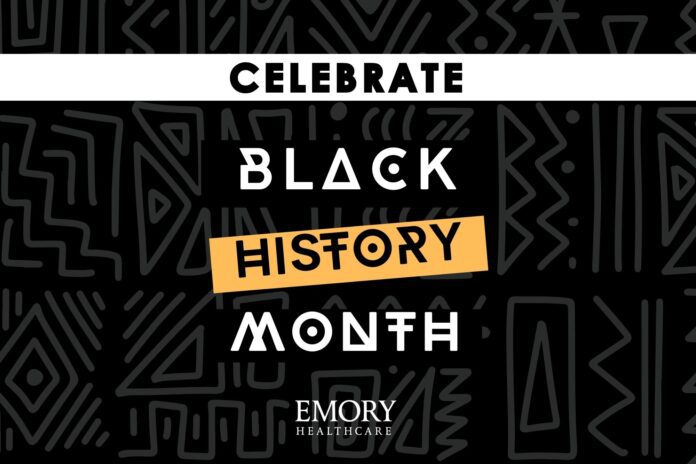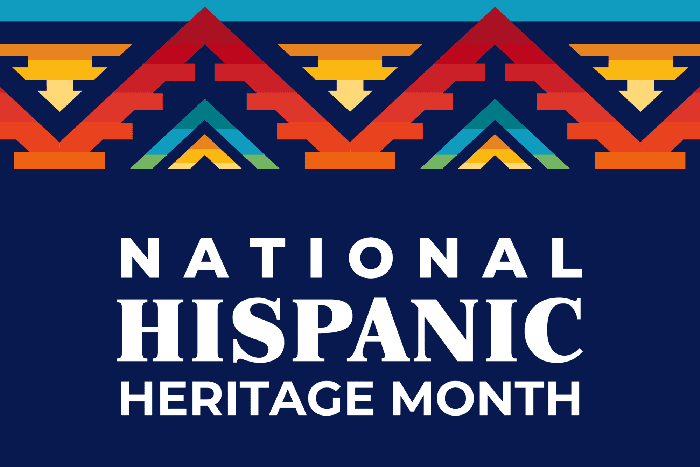Director of Spiritual Health
Emory University Hospital at Wesley Woods
Associate Director of Spiritual Health
Emory University Hospital
 I remember growing up and studying American history as a required elementary and secondary education curriculum component in the 1950s and 1960s. There was extraordinarily little about the achievements of Black Americans in the textbooks. More has been included recently, but only after intense political struggles.
I remember growing up and studying American history as a required elementary and secondary education curriculum component in the 1950s and 1960s. There was extraordinarily little about the achievements of Black Americans in the textbooks. More has been included recently, but only after intense political struggles.
The idea of acknowledging the achievements of Black Americans has been around for a long time. In 1926, Carter G. Woodson, a history teacher, put forward the idea of celebrating Negro history in the second week of February. However, the idea did not gain national recognition until 1976, when President Gerald Ford acknowledged February as Black History Month.
Since 1976, a theme has been assigned. ”This year’s theme is African Americans and the Arts.” According to the Association for the Study of African American Life and History, the theme honors “African American artists (who) have used art to preserve history and community memory as well as for empowerment.”
In Carter G. Woodson’s 1933 book, The Mis-Education of the Negro, he offered a powerful statement regarding the importance of having a history. He wrote, “If a race has no history, if it has no worthwhile tradition, it becomes a negligible factor in the thought of the world, and it stands in danger of being exterminated.”
The month reminds me of those who came before me. The sacrifices of previous generations, some with national recognition and an untold number of others, opened up new opportunities for those like me and other Black Americans.
It is not enough to acknowledge the achievements of prior generations. I recognize that Black Americans in many professions make significant daily contributions, including in health care. What is celebrated in February each year means very little unless we practice the lessons learned throughout the year. During the month, I enjoy writing a weekly article about lesser-known individuals who I believe are making a significant contribution to Black history.
We live in a period of divisiveness when the slightest difference can be used to avoid working for the greater good. A few months ago, I was fortunate to be a part of a team effort to manage an exceedingly difficult situation. It was one of those occasions that needed the attention of public safety, physicians, nurses, social services, and spiritual health. The team also included EMS (ambulance) because the patient needed to be transported to another facility and was not allowing team members to help him.
As I supported the patient’s parents, I became increasingly aware of the team’s compassion for the patient and his parents. The team was patient and collaborative, working as if we managed these situations daily. In two hours, I participated and observed individuals from different professions, nationalities, and ethnic groups, putting aside potential differences to work together for the best care for a suffering patient. I realized again that when individuals work together, more is achieved. We are more alike than we are different.
Eleanor Knight
Senior Manager, Supply Chain
Emory University Orthopaedics & Spine Hospital
 Black History Month is of great importance to me because it provides a designated time to acknowledge and celebrate the achievements, contributions and rich history of my people. This special time allows us to pay tribute to the struggles, resilience and accomplishments of our ancestors, recognizing their profound impact on culture, society, health care and other diverse fields. The month also serves as an opportunity for me to impart my family heritage and legacy to my 12-year-old granddaughter, ensuring she is aware of our rich history. Together, we engage in various activities that highlight the significant accomplishments of the Black community, such as watching Black history movies and documentaries and participating in cultural events.
Black History Month is of great importance to me because it provides a designated time to acknowledge and celebrate the achievements, contributions and rich history of my people. This special time allows us to pay tribute to the struggles, resilience and accomplishments of our ancestors, recognizing their profound impact on culture, society, health care and other diverse fields. The month also serves as an opportunity for me to impart my family heritage and legacy to my 12-year-old granddaughter, ensuring she is aware of our rich history. Together, we engage in various activities that highlight the significant accomplishments of the Black community, such as watching Black history movies and documentaries and participating in cultural events.
Reflecting on my 35+ years in health care, with a significant portion spent at Emory over the last 24 years, I find immense pride in my proudest moments, which include finding innovative solutions, patient care success stories, and community outreach. These instances not only mark milestones in my professional journey but also reaffirm my dedication to positively impacting countless lives.
Being one of the original leaders involved in transforming Emory University Orthopaedics & Spine Hospital into a Magnet hospital stands out as a pinnacle achievement. From the humble beginnings of an empty hospital with six operating rooms to our current state of 10 operating rooms, collaborating with dedicated and passionate leaders has been a source of immense pride. Together, we navigated challenges, celebrated victories, and consistently aimed for the highest standards of care, fostering a supportive and empowering work environment.
Serving as the chairwoman of the Recognition and Wellness Committee has been another rewarding aspect. Motivating and inspiring staff towards greatness brings me 100% joy. Engaging in community outreach programs has allowed me to extend the impact of health care beyond the hospital, and contributing to health education, preventive care, and community wellness programs has been a fulfilling way to address broader health issues.
Subscribe to Emory Health Source
For more stories about how the people at Emory Healthcare make a difference, the care that helps patients every day, and health and wellness tips, subscribe to our monthly email newsletter.


 Black History Month is meaningful to me for many reasons. Most importantly, it provides an opportunity to recognize and celebrate the often-overlooked contributions and achievements of people of color throughout history. It is a time for us to honor the accomplishments and legacies of black individuals in various fields, including science, art, literature, civil rights, and more. Black History Month also serves as a platform for educating people about the rich history and experiences of Black communities, including all of the struggles we have faced and the progress we have made. Lastly, by highlighting the stories of Black leaders and changemakers, Black History Month inspires and empowers me, and hopefully people of all backgrounds, to pursue goals and work towards a more inclusive and equitable society.
Black History Month is meaningful to me for many reasons. Most importantly, it provides an opportunity to recognize and celebrate the often-overlooked contributions and achievements of people of color throughout history. It is a time for us to honor the accomplishments and legacies of black individuals in various fields, including science, art, literature, civil rights, and more. Black History Month also serves as a platform for educating people about the rich history and experiences of Black communities, including all of the struggles we have faced and the progress we have made. Lastly, by highlighting the stories of Black leaders and changemakers, Black History Month inspires and empowers me, and hopefully people of all backgrounds, to pursue goals and work towards a more inclusive and equitable society. The designated colors of Black History Month say it all, with red representing the blood shed for freedom and equality in America, black representing pride in the Black race, and gold representing intellect, prosperity, and peace.
The designated colors of Black History Month say it all, with red representing the blood shed for freedom and equality in America, black representing pride in the Black race, and gold representing intellect, prosperity, and peace. To me, Black History Month is a time for reflection on the achievements, strength, persistence, and beauty of the Black American diaspora.
To me, Black History Month is a time for reflection on the achievements, strength, persistence, and beauty of the Black American diaspora. I remember growing up and studying American history as a required elementary and secondary education curriculum component in the 1950s and 1960s. There was extraordinarily little about the achievements of Black Americans in the textbooks. More has been included recently, but only after intense political struggles.
I remember growing up and studying American history as a required elementary and secondary education curriculum component in the 1950s and 1960s. There was extraordinarily little about the achievements of Black Americans in the textbooks. More has been included recently, but only after intense political struggles. Black History Month is of great importance to me because it provides a designated time to acknowledge and celebrate the achievements, contributions and rich history of my people. This special time allows us to pay tribute to the struggles, resilience and accomplishments of our ancestors, recognizing their profound impact on culture, society, health care and other diverse fields. The month also serves as an opportunity for me to impart my family heritage and legacy to my 12-year-old granddaughter, ensuring she is aware of our rich history. Together, we engage in various activities that highlight the significant accomplishments of the Black community, such as watching Black history movies and documentaries and participating in cultural events.
Black History Month is of great importance to me because it provides a designated time to acknowledge and celebrate the achievements, contributions and rich history of my people. This special time allows us to pay tribute to the struggles, resilience and accomplishments of our ancestors, recognizing their profound impact on culture, society, health care and other diverse fields. The month also serves as an opportunity for me to impart my family heritage and legacy to my 12-year-old granddaughter, ensuring she is aware of our rich history. Together, we engage in various activities that highlight the significant accomplishments of the Black community, such as watching Black history movies and documentaries and participating in cultural events.

